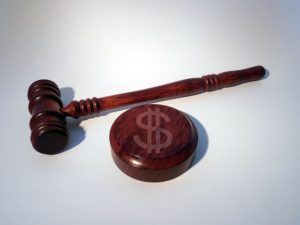 There’s a very interesting case moving through the Supreme Court of Newfoundland and Labrador this week. A judge has certified the class action lawsuit of two men who are suing the Atlantic Lottery Corporation (ALC) for ‘deceptive and illegal‘ practices regarding video lottery terminals (VLTs), aka slots machines.
There’s a very interesting case moving through the Supreme Court of Newfoundland and Labrador this week. A judge has certified the class action lawsuit of two men who are suing the Atlantic Lottery Corporation (ALC) for ‘deceptive and illegal‘ practices regarding video lottery terminals (VLTs), aka slots machines.
On the outside, it would seem to be a simple case of ‘if you can’t beat them, sue them‘. And while gambling cases of that nature don’t generally pay off for the plaintiffs, these two men may actually have solid ground to stand on.
After a review of the filings, Supreme Court NL Justice Alphonsus Faour certified the class action suit, saying the two men’s claims do have merit. Faour said the representatives in the case, Douglas Babstock of Mount Pearl and Fred Small of Gander, have presented a “workable” case against the ALC.
“The plaintiffs have asserted a claim which rests on allegations of misrepresentation and deception in the offering of games which they say may cause harm,” read Faour’s written decision to proceed with the case.
“The plaintiffs have persuaded me that their conceptualization of this case is workable, and can be considered on the merits of the case as framed,” he wrote.
Justice Faour called upon the expertise of a research associate professor from the University of Waterloo, Dr. Kevin Harrigan, who’s done extensive research on problem gambling, to support his decision.
“Based on the affidavit of Dr. Harrigan, there is some basis in the evidence of deception and misrepresentation in the offering of these games to the public,” the judge concluded.
300yr Old Law Backs Slot Machines Case
Ches Crosbie and Michael Dull, the attorneys representing Babstock and Small in their deceptive slot machines case, did some extensive research of their own. In fact, they dug so deep, they drudged up a law that dates back over 300 years to support their claims.
The case could hinge upon an act known as the Gaming Act of 1710. That act stipulates that anyone who has lost money on any deceptive form of gambling is permitted to sue for recovery of all losses, times three. By that law, a gambler could theoretically lose $1,000 on slot machines, and sue for $3,000. However, the men will have to prove that ALC was, indeed, using deceptive and illegal practices in the supply and/or advertisement of its VLTs.
Originally a law of Great Britain, the act was repealed by the Gaming Act of 2005. However, they seem to be basing their case on the antiquated statute’s text, which reads:
“Whereas the Laws now in force for preventing the Mischiefs which may happen by Gaming have not been found sufficient for that Purpose therefore for the further preventing of all excessive and deceitful Gaming.”
“The defendant rightly points out that the act may not be in force in the province at this time in history. The plaintiffs will have to make the argument for its applicability at trial,” the judge wrote in his decision.
The plaintiffs will need to prove that current laws are not sufficient in preventing deceptive practices, thereby making the Gaming Act of 1710 relevant, and that the ALC was, in fact, using such duplicitous means in the operation of its slot machines.











